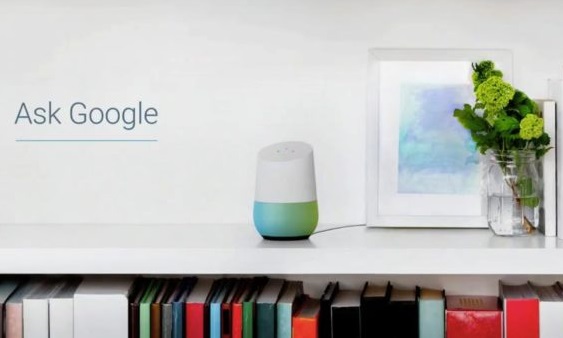Google has launched a virtual assistant to rival amazon Echo, letting home users interact with a smart speaker device using voice commands.
The device, called Google Home, is a virtual assistant technology released earlier this year that is similar to Apple’s Siri and Amazon’s Alexa in function.
Assistant is designed to let users carry on what the company has described as a two-way dialogue with Google using conversational speech.
Google Home is a small voice-activated consumer device that uses Google Assistant. It will let home users use normal speech to control things like their smart home lighting and heating systems and to set timers for various synced-up devices. It will also deliver local news and movie information, and provide weather updates.
In introducing the technology at Google’s I/O conference earlier this year, Mario Queiroz, the company’s vice president of product management, said Home would give users continued access to Google inside their homes in a hands-free fashion and without needing their phones or tablets.
“Google Home lets you enjoy music and entertainment throughout your entire house, manage everyday tasks more easily, and ask Google what you want to know,” Queiroz said. Anyone in the family will be able to interact with Assistant and with Home by speaking to it, he noted.
A week ago Amazon said it would start selling the Echo in the UK at £149.99, two years after its introduction in the US.
Despite a low-key launch the Echo sold 3.5m units in the time it took Amazon to adapt the device to recognise the full gamut of British English accents and voices.
The Echo and other such “smart speakers” connect to home Wi-Fi, and owners can ask them to play music, read them the headlines, or even turn on the lights (provided they’ve got the requisite smart home gear installed elsewhere).
Just the beginning of an IoT world
Hugh Fletcher, Digital Business Consultant, Salmon, commented on the launch: “The official release of Google Home confirms that the emergence of IoT devices isn’t simply a trend, but will change the way we experience daily life. It’s also evidence of the rise of ‘zero UI’ – illustrating how tech giants’ are shifting away from screen based interaction in favour of voice control. As technology becomes progressively inter-connected, IoT devices will revolutionise the way consumers interact. Like Amazon Echo and British Gas’ Hive, Google is entering the increasingly competitive market of connected devices in the home. At Salmon we believe that Programmatic Commerce will change the retailing industry and enable customers to benefit from the automated ordering of goods by smart devices. Our recent research found that 57% of consumers will be ready for automated shopping through smart devices within the next 2 years.
“Importantly, brands must recognise that they cannot expect to retain customer loyalty if they do not embrace these new technologies. Kantar’s recently launched ‘Connected Life’ study only goes to show how vital it is for businesses to understand their audience, with 38% of the 70,000 surveyed saying they would allow their data to be shared with brands if they saw a reward in return. Amazon dominates its respective market by putting the consumer first, and both Amazon Dash and Echo highlights how the company is embracing internet connected devices. Companies mustn’t limit the possibilities and need to introduce the necessary back-end infrastructures that allows consumers to fully benefit from IoT devices. Programmatic Commerce, Google Home and Amazon Echo are the beginning, and businesses must invest now to thrive in the soon to be IoT-led world.”
